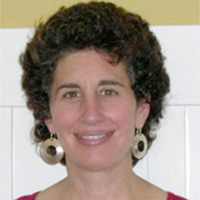
I was honored to have worked with Brit Tzedek from the first online conversations about forming a national Jewish organization working for two states in December 2001, to the founding conference planning committee meeting in my home in March 2002, to the transition to J Street eight years later in January 2010. The work was inspiring, exhausting, and life-changing.
I was especially pleased with how we built a community of committed activists and leaders, many of whom volunteered their talents to our cause for countless hours a week over the years. We were not your typical machers; some of us were long-time activists on other issues, some had been involved since the 1970s with Breira, and some had not been activists until the tragic violence of the Second Intifada pushed us to action. Some of us had prestigious jobs; for example, we had a large cadre of Ivy League professors and quite a number of rabbis. Others of us worked as social workers or airport screeners or business entrepreneurs or computer programmers. We came together and built a truly cohesive group! Some of us were secular, some observant; we covered the denominational spectrum. Some of us found ourselves becoming more observant as we spent time reaching out within synagogues and enjoyed it. No matter who you were, there was a significant and meaningful role for you to play in Brit Tzedek. And many of us now have lifelong friends as a result of our work.
I was also pleased with the personal outreach we did to friends and family and members of our community. We focused heavily on one-on-one outreach in the pre-social media days. While we clearly didn’t win over everyone with whom we talked, we kept moving along, supporting one another to keep reaching out and learning from each effort at connection.
We provided a space where you could talk about your real questions and concerns regarding the conflict; where we could put voice to our deep love and concern for the welfare of both Israelis and Palestinians. We didn’t blame the settlers who were seeking a better life for their families at a cost they could afford. We could care about our people and also realize that the situation had caused us to act as oppressors when it came to the Palestinians. We didn’t idealize the Palestinians, and understood that they had made their share of mistakes, but neither did we defend Israel’s every action.
I think that the genuine caring we showed Israelis was important for the many rabbis who initiated their Middle East peace activism by signing on to our rabbinical letters. Well over 1000 joined on!
The number of diverse Palestinian voices we brought to the table in our teleconference calls, our national trainings and conferences, and our tours also delighted me. Many synagogues hosted their first Palestinian speaker through Brit Tzedek, and numerous American Jews had their first encounter with Palestinians through our work. We made it very clear that we did not endorse every position espoused by our speakers, but we provided them with the space to share their thinking, and to help inform our own perspectives. We worked in coalition with Palestinians on areas in which we agreed. We didn’t have to agree on every point; we joined together where we had commonalities.
Aliza Becker

